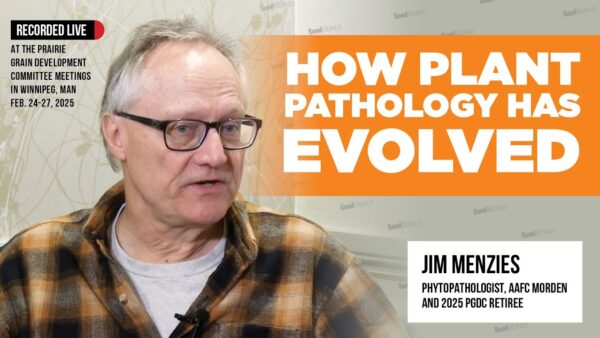Seed-applied technologies represent a revolution in farming; the developments in this space are making a huge difference for growers who want to make the most of their seed investments.
On the Sept. 28 episode of Seed Speaks, we’ll be joined by three experts: Shad Milligan, western Seedcare technical lead for Syngenta; Chris Hewitt, marketing lead, seed treatments Canada for BASF; and Holly Little, director research and development for Acadian Plant Health.
They all work with companies known for developing new seed-applied technologies that offer new value to growers and end users. These companies were also named on Germination‘s Top Most Innovative Products list or 2022.
Seaweed extracts are well known to help with crop stressors, but until recently had not been connected to soil health. Acadian Plant Health has conducted research to show the connection. The health of soil is a primary concern to farmers and the global population whose food security depends on well-managed agriculture.
The natural variability in canola seed size can cause several issues, such as seeding misses, and double- or triple-seeded canola, which impact emergence. Syngenta’s Pelta technology optimizes seed size and uniformity for more accurate seed placement, greater survivability, and stronger stand establishment.
Farmers with wireworms can face a loss of more than 50% of seedlings — and the survivors may be stunted, which can further reduce yield. Other seed treatment products temporarily intoxicate wireworms that allow for pests to potentially return season after season. Enter Teraxxa F4, a seed treatment created by BASF. Teraxxa F4 eliminates wireworms and reduces wireworm populations by breaking up their reproductive cycle in cereal crops.
We’ll discuss why these technologies are so significant and what they see coming down the pipe. Join us at the YouTube link below.











